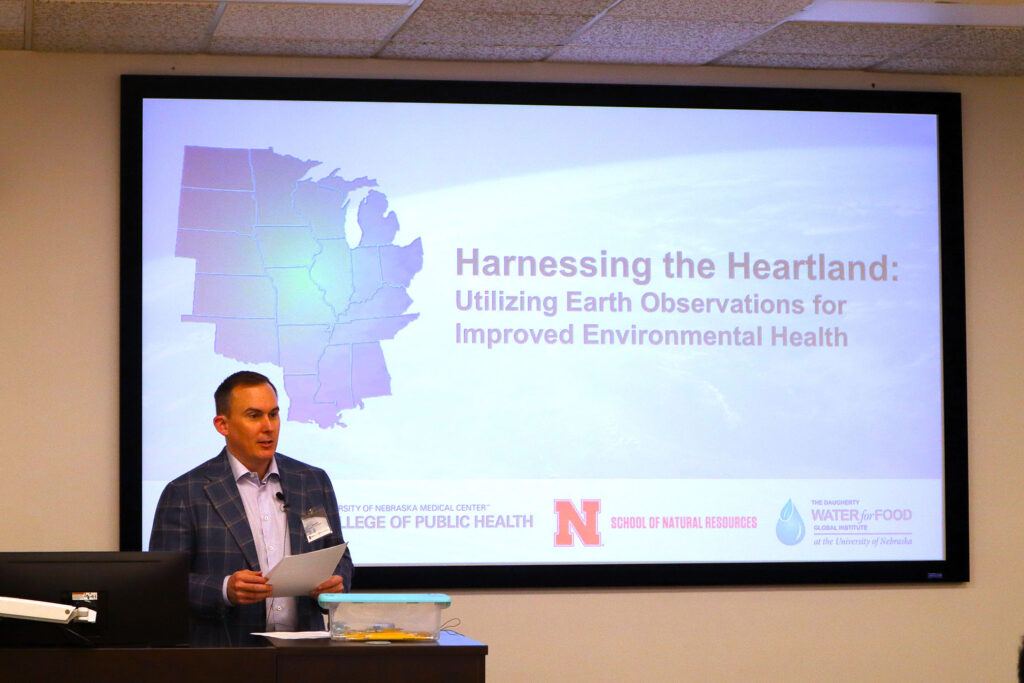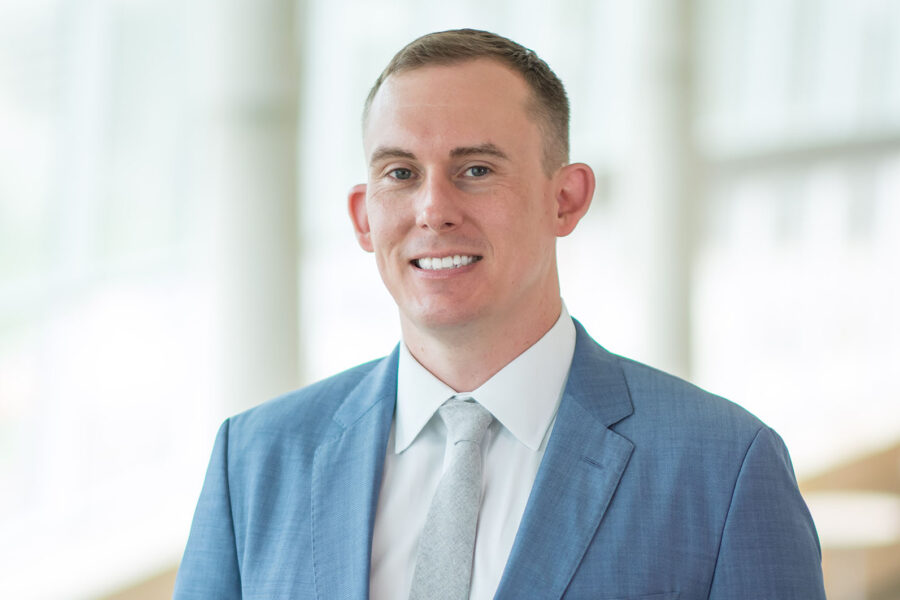An interdisciplinary group of climate and health experts from across the Midwest visited UNMC Feb. 29-March 1 for the “Harnessing the Heartland: Utilizing Earth Data for Improved Environmental Health” conference to advance collaborative efforts to improve climate-related health needs throughout the region.
Sponsored by the UNMC College of Public Health’s Water, Climate and Health Program, the Daugherty Water for Food Global Institute, the University of Nebraska-Lincoln School of Natural Resources and NASA, the conference marked the launch of a partnership. Universities, local and state public health entities and other stakeholders throughout the region are collaborating to address climate-related public health challenges in the Midwest, such as negative health impacts that result from drought, poor air quality, and extreme weather.
Prior to visiting UNMC, attendees attended sessions at UNL to discuss climate stability solutions in the region.
With a focus on how to better collaborate between organizations and improve public health research, interventions and community engagement, attendees shared current research and outreach efforts being conducted throughout the Midwest and identified current gaps and areas where additional support was needed.
Robert Swap, PhD, associate division director for mission planning in the earth sciences at NASA’s Goddard Space Flight Center, was among the conference’s headline presenters. He said the collaborative goal was to “bring together the best and brightest from across all sectors to help gather around the topic of climate resilience research, to produce actionable information and inform decision-making at all levels.”

Jesse Bell, PhD, Hubbard Professor of Water, Climate and Health in the UNMC College of Public Health, said he was excited about the array of expertise brought together by the event. It’s important to translate ongoing earth observations into “doing something on the ground” to improve human health in the region, he said.
“We are living in a time of a lot of data,” Dr. Bell said. “We understand more about our earth’s system and are able to monitor conditions more readily than any other time in the history of our planet.
“But how do we best use (all this data) to understand human health outcomes?”
Ali S. Khan, MD, MPH, dean of the UNMC College of Public Health, who spoke at and took part in the conference, said things like climate, weather and air quality can’t be underestimated as determinants to public health.
“We are excited by these efforts to bring NASA expertise and translate their data for action in our local communities across the region to address climate change, disasters and emerging infections,” Dr. Khan said.
The Water, Climate and Health Program at the UNMC College of Public Health has been in partnership with the NASA Earth Science Division for years, using NASA satellite observation data to better understand relationships between poor air quality and negative respiratory health outcomes, for example.
This gathering marked a turning point, Dr. Bell said.
“The coastal regions have been doing this on a grander scale, and the central part of the U.S. has sometimes missed out on this,” Dr. Bell said. The conference brought together an impressive collection of experts and resulted in plans to work together in the future, implementing information from earth observations into decision making.
The UNMC College of Public Health is eager to serve as the glue that keeps the group together as the effort grows.
“We want us to be a leader in this,” Dr. Bell said.
For more on UNMC’s Water, Climate and Health Program, click here.
